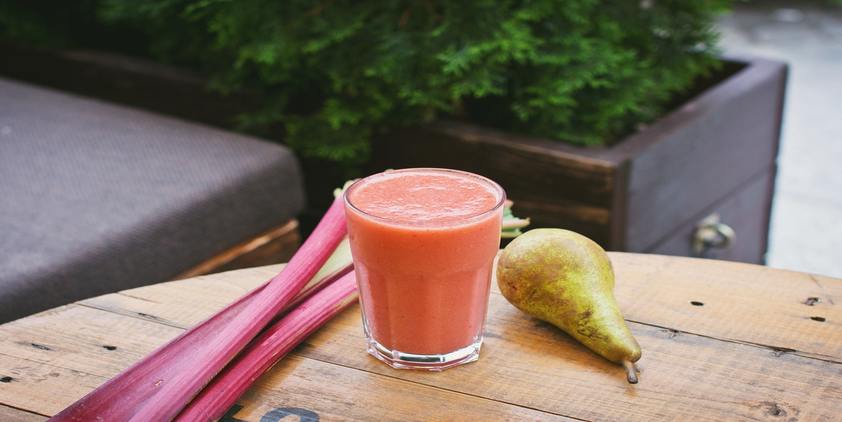

September 1, 2019 | Categories: Health, Weight Loss & Nutrition
If you’re like most Americans and resolve to shed a few pounds by starting a diet in the new year, you’ve probably already planned what you’re going to cut out. Carbs? Meat? Dairy? Whatever your choice, eliminating certain food groups—as most diets do—could actually hurt your health. Here, nutrition experts Lisa Stollman, RD, author of The Trim Traveler, and Lori Zanini, RD, spokesperson for the Academy of Dietetics and Nutrition, look at some of the more popular diets and offer advice for how to balance your daily intake, so you don’t miss out on the important stuff.
Remember, diets with claims that sound too good to be true are probably just that. Before changing how you eat in any major way, be sure to talk to your health care provider. Also check out the 25 best diet tips of all time.
If you like the idea of eating like a caveman—more whole foods, less processed ones—the Paleo diet might be for you. It excludes dairy, grains, beans, sugar, potatoes and processed oils, like partially hydrogenated soybean oil. What can you eat? Meat, fish and shellfish, eggs, tree nuts, vegetables, fruit and canola and flaxseed oils are Paleo-approved.
Potential deficiencies are vitamin D, calcium, carbohydrates and fiber, says Zanini. Carbohydrates are the energy source for the cells in your body. They’re especially important for your brain, since, unlike other organs in your body, it’s completely dependent on carbs for normal functioning.
Starchy vegetables like sweet potatoes and winter squash provide healthy carbs, says Zanini. Eat Paleo-approved foods like wild salmon and mushrooms for vitamin D, or seek out a supplement. Salmon (or sardines) with bones provide calcium, too. Leafy greens, such as broccoli, kale and Chinese cabbage, and fortified almond milk are other good calcium sources. For fiber, make sure to eat a variety of fruits and veggies (fiber is found only in plant foods).
Call them the anti-cavemen: Whether for ethical or for health reasons, vegetarians cut out meat, poultry and fish, and vegans eliminate any animal products, including eggs and dairy. Recent research found that a vegan diet might be best for weight loss as well as overall health. Vegetarian and vegan diets tend to be high in fiber and are associated with lower cholesterol, decreases in heart disease and high blood pressure, and lower risk of type 2 diabetes, says Zanini.
When carefully planned, both of these diets are healthy and nutritionally adequate. Vegans could be at risk for insufficient omega-3 fats and vitamin B12 in their diets, though, Zanini warns. Calcium is important, too.
Both vegetarians and vegans need to make sure they have good sources of bioavailable calcium—found in calcium-set tofu (check the label for calcium sulfate), broccoli, bok choy, collard greens, kale and Chinese cabbage, says Stollman. To get omega-3 fats, consume walnuts and generous amounts of flaxseed and canola oils, and consider an algae-based (vegetarian) omega-3 supplement. For B12, vegans need B12-fortified foods, such as breakfast cereals and soy and rice beverages, or supplements. Vegetarians rely on dairy and eggs for their B12.
Low in sugar, fruits, starchy vegetables, beans and refined and whole grains, these diets tend to help people drop weight quickly, because eating fewer carbs dips your insulin levels and spurs the body to burn fat for energy, leading to weight loss.
Getting adequate dietary fiber—25 grams a day for women and 38 grams a day for men—can be a concern, as can vitamins A and C, says Zanini. Also watch for added salt in processed and packaged foods.
Non-starchy veggies like beets, asparagus, broccoli, eggplant and mushrooms increase fiber intake without piling on carbs, says Stollman. Seek tomatoes and tomato sauce, broccoli, red bell peppers and kiwifruit for vitamin C. Increase vitamin A with carrots, spinach, kale and broccoli.
Gluten is a protein found in foods containing wheat, barley and rye. While going gluten-free is a must for people with celiac disease, which causes severe symptoms when sufferers eat gluten and may interfere with the body’s ability to absorb nutrients, skipping gluten has also become popular among people who want to eat healthier. Similar to low-carb diets, the no-gluten rule encourages you to eat more whole foods.
If you’re going “gluten free” for lifestyle reasons rather than health ones, it’s not likely you’ll be missing many nutrients, says Zanini. But because gluten-free products are made with refined starch and aren’t enriched like wheat-based products, your gluten-free diet could be lacking in iron, folate and fiber, she adds.
Get iron from meat, chicken, fish, beans and nuts. Consume a food high in vitamin C, such as an orange or red bell pepper, along with iron-containing foods for better absorption, suggests Stollman. As a bonus, oranges and orange juice provide folate, too. Get fiber from fruits, vegetables, beans, nuts and non-gluten whole grains, such as brown rice, quinoa and oats.
And remember, just because a food is gluten free doesn’t mean it’s good for you. Gluten-free diets that aren’t carefully planned are often higher in salt, fat and sugar, says Zanini, since manufacturers compensate for flavor and texture problems in packaged gluten-free foods by adding these ingredients.
Read the full article on Walgreens.
Leave a Reply